- Home
- Iris Murdoch
The Red and The Green Page 6
The Red and The Green Read online
Page 6
‘You mean the language of Cromwell.’
‘Don’t keep interrupting, Cathal.’
‘Well, I know when I’m not wanted!’
Cathal turned his chair right round to face Frances and his mother. Pat felt, like a small electric shock, a change in the emotional temperature which he realized to be Andrew’s apprehension of their being left as it were tete-a-tete. Pat began to feel extreme irritation. He hoped that the conversation would not start to come round to the question of the war. He thought he could feel, and that with even more annoyance, Andrew deliberately avoiding the subject. At the thought that the ‘lilly-white boy’ might see himself as tactfully sparing his interlocutor an embarrassment a jeering scowl invaded Pat’s face. He composed his features with difficulty.
‘You must come round and see my mother’s new house.’
‘Oh yes.’
‘She’s always asking after you.’
‘I trust Aunt Hilda is well?’
‘She’s fine now. She was awfully upset by the Zepps, you know.’
‘Was she?’
‘And how is my Uncle Barnabas these days?’
‘Very well, I believe.’
‘I’m so glad. You see, I haven’t had time to come and see him since I came over, actually.’
‘Really.’
Calmly determined to let the conversation run if necessary to a stand-still Pat fixed his eyes upon the crucifix above Andrew’s head. He realized that this object somehow upset his cousin. Andrew squirmed in his seat. Pat thought he would try to force Andrew to look at the crucifix. But at that moment there was a little uproar from the other group.
‘Our Lord said, “I bring not peace but a sword”.’ Cathal, who was incapable of tolerating a conventional conversation, had somehow steered the talk on to more general topics and was raising his voice.
‘He meant the sword of the spirit,’ said Kathleen in a subdued way. Having spent so much of her life as a widow with two high-spirited boys, she had cultivated a particularly soft rather dispiriting voice guaranteed to lower the temperature of any discussion.
‘No He didn’t, and I tell you why, because He was a Socialist.’
Frances laughed.
Pat, unable to resist contradicting his brother, turned round and said, ‘Even if that were true, which it isn’t, it wouldn’t be very relevant.’
‘How do you know if it’s relevant since you don’t know what we’re talking about?’
Frances said, ‘We’re discussing pacifism.’ She emulated Kathleen’s slow soft voice.
‘I told you it wasn’t relevant.’
‘It is so relevant. War is right when it’s a fight for social justice.’
‘But you don’t have to kill people fighting for social justice,’ said Kathleen. ‘I agree with Daniel O’Connell, “No political reform is worth shedding one drop of blood”.’
‘Are you a pacifist, Aunt Kathleen?’ asked Andrew. His air of friendly condescension made Pat want to kick him.
‘No, not really. I just feel about this awful trench warfare— it can’t be right. War has changed its nature.’
‘It’s all a matter of ends and means,’ said Cathal.
‘But some means are so terrible they can’t really be means any more because the end gets lost. And some means are wicked in themselves, like torturing people or murder.’
‘We call killing murder when we think it’s a means to a bad end,’ said Cathal. ‘Of course this war is senseless, but that’s because it’s an imperialist war, and not because—’
‘You don’t even know what “imperialist” means,’ said Pat.
‘You want to say,’ said Frances slowly and softly to Kathleen, ‘that it could be all right with bows and arrows, but this sort of thing couldn’t possibly be all right. I think I agree with you. When you really look at what’s happening the world seems to have gone mad.’
‘So you think Cousin Andrew’s acting wrongly?’ said Cathal, in a loud voice.
‘Oh no, no!’ said Kathleen. ‘I was only speaking for myself.’
‘Something can’t be right or wrong just for yourself, if it’s right or wrong it must be right or wrong for everybody.’
‘Not at all,’ said Pat, ‘it depends what you mean—’
‘Of course in a way I agree with you, Aunt Kathleen,’ said Andrew. ‘It’s all very well for people in places of safety to exhort us all to fight. But once one’s been at close quarters with the business it’s another matter.’
There was a short silence. ‘How close quarters have you been at?’ asked Pat, who very well knew the answer to his question.
Andrew flushed and frowned. ‘Well, I can’t say I’ve seen any action yet. I wasn’t long in France.’
‘It was smart of you to join the cavalry,’ said Cathal. ‘We all know the cavalry are kept miles behind the front line.’
‘That’s not true as it happens. And at least I’ve joined the army, I’m not just sitting at home or playing at soldiers in the back garden like some people.’
Cathal stood up, almost overthrowing the table. Frances and Kathleen started to speak in raised voices.
At that moment an extraordinary sound was heard just outside the room. It consisted of a series of loud resounding bumps accompanied by a tinkle of breaking glass and a human voice protesting in a traditional manner. Silence followed. Pat, interpreting the phenomenon, which was familiar to him in analogous forms, concluded that his stepfather, carrying some bottles of whiskey, must have fallen down the second flight of stairs, which, after creeping past the drawing-room door, he had been cautiously mounting. ‘Oh dear, oh dear, oh dear,’ said Kathleen. There was a general rush to the door.
Barnabas Drumm, wearing his hat, was sitting on the floor with his back against the newel post. A wide area of broken glass surrounded him, and from an extensive dark stain on the carpet there rose an overwhelming odour of whiskey. Barnabas looked sideways at the group in the doorway. Although he must have been perfectly aware that his predicament could amuse nobody and indeed must be causing a variety of different chagrins to all present, he could not help clowning it a little. He sat there with legs outstretched and began to whistle through his teeth.
Kathleen passed him by, stepping over him, and half ran along the landing. She returned in a moment with a dustpan and brush and, ignoring her husband, began to pick up the larger pieces of glass and put them into the pan. She worked slowly, in a resigned manner resembling the low voice she used to her sons, putting a quiet bitterness into the droop of her head.
Frances said, ‘Are you all right? Have you hurt yourself?’
Cathal retired back into the drawing-room and shut the door sharply behind him. He was always wounded and affronted by his stepfather’s total lack of dignity.
Andrew put his hand on Frances’ arm, as if to protect her from a rowdy scene.
Annoyed by all these reactions and infuriated by the author of the incident, Pat said, ‘For God’s sake get up!’ He pulled off his stepfather’s hat and jammed it on to the post with a force which nearly split the crown.
With a good deal of dumb show, rubbing his bottom and his elbows, Barnabas began slowly to rise. He said, ‘Isn’t it just the like of me to do a thing like that.’
Barnabas Drumm was a short round man with a mild flabby face and a large golden moustache a little grizzled at the ends or soiled with Guinness. His brown hair fuzzed tonsure-fashion round a neat bald spot. The puzzled light blue of his eyes, invaded now by streaky reds and yellows, retained a childish quality. He still had a mouthful of good teeth and showed them often in a smile which though invariably gentle was also a reminder that he had once been better armed for the battle of life than he now seemed in general to be. Women, speculating about why level-headed Kathleen Dumay should have taken up with this muddle of a man, were divided between those who said that she had been pushed around by her first husband and now wanted someone she could push around, and those who voted Barney to be ‘really rathe
r sweet’.
‘Hello, Andrew,’ said Barnabas. ‘We meet at last, though not in the happiest circumstances. Think of all that excellent whiskey gone bang. Oughtn’t we all to go down on our knees and lick the carpet.’
‘Barney, will you please see me to the tram?’ said Frances suddenly. Her voice sounded strained, as if she were about to burst into tears.
‘Why, my dear, of course—’
Andrew said, ‘But, Frances—’
‘No, don’t you come, Andrew. You stay here. I’ve got something special I want to say to Barney. Thank you so much, Aunt Kathleen. I’ve so much enjoyed myself.’
Frances had already seized her umbrella and her boa and was leading Barnabas away along the landing. Kathleen murmured something with her head still well down among the glass. Laboriously she was picking up tiny glittering splinters between her fingers.
Pat went back into the drawing-room and joined Cathal, who was standing stern-eyed at the window. Together, like a grim tribunal, they looked disapprovingly down upon their stepfather as he disappeared down the street arm-in-arm with Frances, sheltering under her umbrella in the light rain. He contrived to look jaunty. Pat detested jauntiness.
Andrew Chase-White, looking distracted, came running back into the room. The brothers ignored him. He seemed to run about for a little while like a dog. Then he returned to Kathleen and tried to help her with the glass, but the task appeared to be completed. He came back again and started to look for his raincoat. Pat wandered from the window and took up the George Moore novel. Andrew got as far as the door and then suddenly came back and stood before his cousin.
‘Pat—’
‘Yes?’
‘Oh—sorry—nothing—’
‘Goodbye, then.’
Looking wretched, Andrew left the room, colliding with Kathleen, who was returning with the tea tray. Murmuring thanks, he made for the stairs.
Kathleen, watched by her sons, began slowly to stack up the tea things. Pat noticed that she was crying. Big tears welled from her eyes and fell from her cheeks on to the tray. She always stooped double over any task she performed. Pat could not fathom his mother’s frequent and unconcealed tears, but he felt them as an aggression upon himself and averted his eyes. These exhibitions displeased him without troubling him deeply. He found women obscure and mysterious but not interesting. Kathleen left the room.
‘Ah well,’ said Cathal. ‘“Up the long ladder and down the short rope, to hell with King Billy and long live the Pope.” What did he want, I wonder?’
‘He wanted to apologize. He would have done so if you hadn’t been here.’
‘Well, let him go. We don’t mind him. He’s nothing. Are you going to belt me?’
‘I’ll let you off this time.’
‘Pat—’
‘Yes?’
Cathal came up behind his brother and gently put his arms round his waist. ‘When is it to be?’
‘I don’t know what you’re talking about.’
‘You do so.’
‘I do not.’
Chapter Four
Over and over, like a mighty sea,
Comes the love of JESUS, rolling over me!
Several hundred youthful voices pealed it forth enthusiastically as Andrew and his mother went with quickened step and stiffened gait past the big marquee. A large red banner above it read Children’s Special Service Mission, and Saved by the Blood of the Lamb. Neither Andrew nor his mother referred to the phenomenon. They were on their way to visit Aunt Millicent. ‘You really must fix things up properly with Frances, after all it’s up to you,’ said Hilda, as they began to pass out of range.
Once I was blind, now I can see,
Once I was bound, but now I am free,
And that’s how I KNOW there’s a Saviour for me—
OH such a Saviour!
Andrew reflected, as the horrible sounds died away, that in Ireland religion was a matter of choosing between one appalling vulgarity and another. Wondering which he would vote for if he had to choose, he concluded sadly that of course he would have to be with the young people in the marquee and their boisterous mentors. ‘Yes,’ he said absently.
At the moment Andrew could think of nothing else but Pat Dumay. He regretted everything about yesterday’s scene. He felt he had cut a rotten figure. He had failed to protect Frances from a sort of grossness in the atmosphere. He had construed her rushing off with Uncle Barnabas as a reproach to himself. He had helplessly witnessed his uncle playing the buffoon. And worst of all he had allowed himself to be provoked into taunting Pat. He had scarcely troubled to formulate any intention or resolution about this beforehand, so impossible had it seemed that he should affront his cousin. It had been for Andrew an axiom that Pat was a little larger than life and far too dignified and authoritative to be in any way goaded or jeered at. Such behaviour would only belittle the jeerer; as he now felt himself belittled. More than this, he felt an acute regret, almost a sentimental pain, to think that he had probably ruined his chances of becoming Pat’s friend. He now realized, inordinately, surprisingly upset by the incident, that so far from being ‘liberated’ from his uncomfortable interest in his cousin, he had returned to Ireland with the ardent hope of being treated as his equal, of winning his respect and even his affection. Yesterday’s encounter had been very important to him and now that it had misfired he was left with an emotional problem. He had hardly been able to bring himself to leave the house, he could not remember whether he had said goodbye to Aunt Kathleen, and he would certainly have attempted some reconciliation scene then and there, had not the maddening Cathal been standing by.
‘After all, Frances wants a formal proposal, any girl does,’ Hilda was going on. ‘It’s a great moment in one’s life. She’ll want to be able to remember it later on. It is really time there was an announcement. And you must do something about a ring. It isn’t fair to other young men, and now that Frances is going more into society you don’t want to land her in difficulties.’
With an effort Andrew switched his attention to Frances. Yes, he really must get Frances fixed up. And of course, yes, a great moment. My dearest Frances, I have something of very great importance to ask you. I wonder if you can at all guess what it is? Indeed, dear Andrew, I cannot conjecture. You will have to tell me. I wish you to do me the honour of becoming my wife. ‘You are quite right, Mama,’ he said.
‘I do hope Christopher will be on time. I saw him this morning at Bewley’s in Grafton Street and he swore he’d come. It’s such a job to get him round to Millie’s. I do find your aunt rather a strain and I know he does too. Thank heavens it’s stopped raining, so perhaps he’ll wait for us outside. You say everything looked just the same at Blessington Street? I really must get round there and see the boys, Kathleen keeps pestering me. I am surprised she does not re-do her drawing-room. She could easily afford it, and it must look so shabby and old-fashioned now.’
‘It looked exactly as I always remember it.’
It was a room that receded into his earliest childhood like a long dirty corridor, always twilit, stuffy, melancholy, vaguely menacing. And yet perhaps it was not quite the same, or rather he himself had changed. He recalled seeing yesterday, as he checked the massy drifts of furniture and the myriad objects still rooted in their old places, an oriental table with innumerable pieces of glass set into its gilded legs. He remembered this, which had once seemed to him an object of exotic beauty; it now looked as his mother would see it, tawdry, vulgar. Some glory had gone from the room, something which at least it had had which resembled beauty. The presence of the big crucifix, which had formerly seemed both thrilling and alarming, now just seemed a piece of rotten bad form, characteristic of the particular undiscriminating muddle in which his aunt and uncle lived. Well, well, he would take Frances to England, away from all this. Yes, Andrew, she whispered gratefully, yes, yes. Her little hand sought his, and as he drew her to his breast he could feel the violent beating of her heart.
‘Ah, th
ere’s Christopher waiting outside, bless him, wearing that comical mackintosh hat. Hello, Christopher, we were hoping you would be punctual. Oh, before I forget, Kathleen was at Claresville just after luncheon and said she’d looked for you at Finglas and there was something special she wanted to see you about.’
Christopher seemed a little depressed by this news. ‘What have I done now? Did she say what it was? Was she upset?’
‘No, she didn’t say. She wasn’t upset. You know Kathleen’s never exactly bright and gay. I shouldn’t think it’s important, so don’t worry.’
‘Ah well. Once more into the breach, dear friends.’
Aunt Millicent’s town house was what Hilda called ‘one of the better class houses’ of Dublin. It was a ‘double-fronted’ house in Upper Mount Street, several times wider than the house in Blessington Street, but otherwise not unlike it in structure. In the watery sunlight the brick façades of Upper Mount Street glowed a rusty pink and yellow, only Millie’s house, together with one or two others, had been washed over with a powdery red preparation, currently fashionable, and the interstices between the bricks outlined in black. The sagging steps up to the door were immaculately reddened to match. Beneath its magisterial fanlight the door was a radiant newly painted rose pink, its brass knocker, shaped like a fish, polished as softly bright and smooth as Saint Peter’s toe; while at each gleaming window a heavy froth of lace curtain was symmetrically looped back. Just beyond, at the end of the street, the elegant green dome of Saint Stephen’s, Church of Ireland, rose into the lucid blue sky. Long green coppery streaks trailed down the light grey stone of the tower and fingered the clock which was just now striking four. Its particular high cracked tone struck with a melancholy authority upon the heart of Andrew, recalling to him the church’s rational empty interior where he had sometimes worshipped as a child, if participation in those calm, prosaic rites could be called worship.

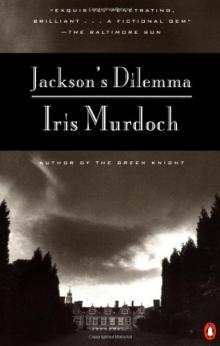 Jackson's Dilemma
Jackson's Dilemma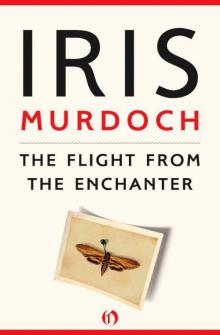 The Flight From the Enchanter
The Flight From the Enchanter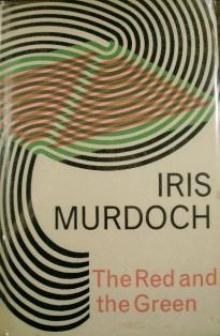 The Red and the Green (Vintage Classics)
The Red and the Green (Vintage Classics)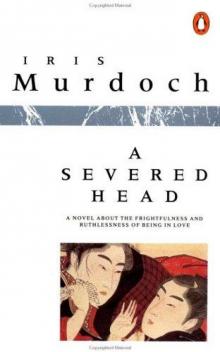 A Severed Head
A Severed Head The Black Prince
The Black Prince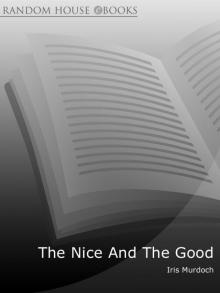 The Nice and the Good
The Nice and the Good The Unicorn
The Unicorn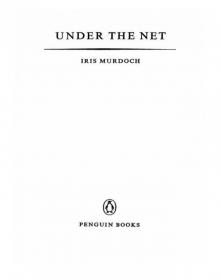 Under the Net
Under the Net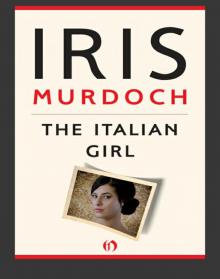 The Italian Girl
The Italian Girl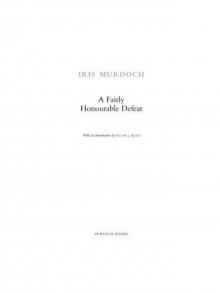 A Fairly Honourable Defeat
A Fairly Honourable Defeat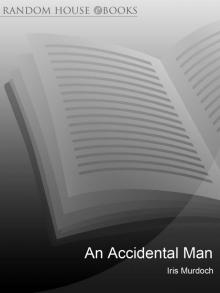 An Accidental Man
An Accidental Man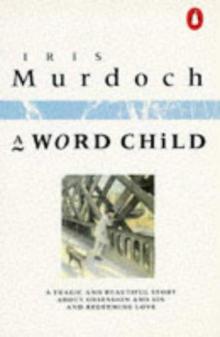 A Word Child
A Word Child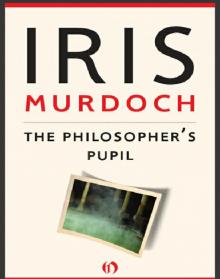 The Philosopher's Pupil
The Philosopher's Pupil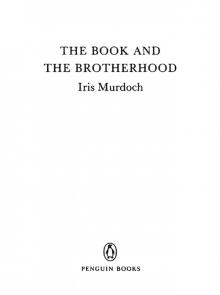 The Book and the Brotherhood
The Book and the Brotherhood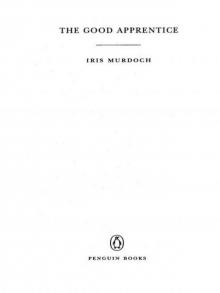 The Good Apprentice
The Good Apprentice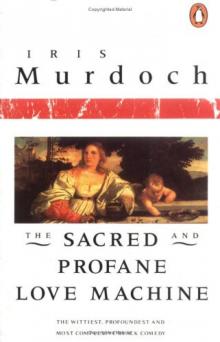 The Sacred and Profane Love Machine
The Sacred and Profane Love Machine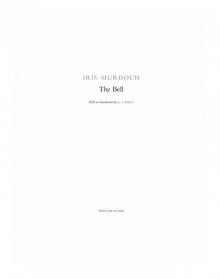 The Bell
The Bell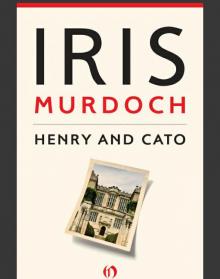 Henry and Cato
Henry and Cato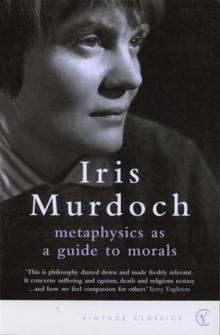 Metaphysics as a Guide to Morals
Metaphysics as a Guide to Morals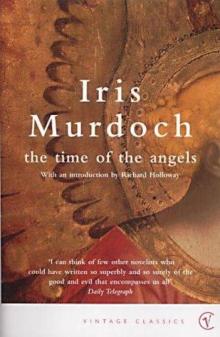 The Time of the Angels
The Time of the Angels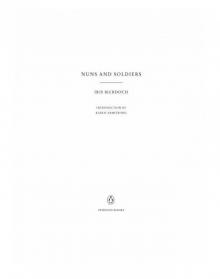 Nuns and Soldiers
Nuns and Soldiers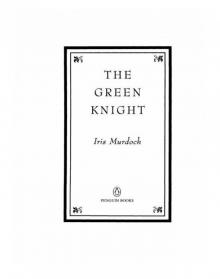 The Green Knight
The Green Knight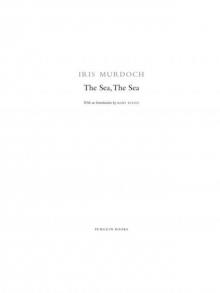 The Sea, the Sea
The Sea, the Sea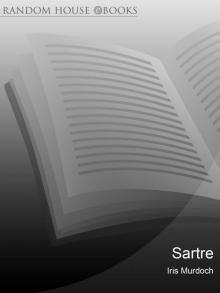 Sartre: Romantic Rationalist
Sartre: Romantic Rationalist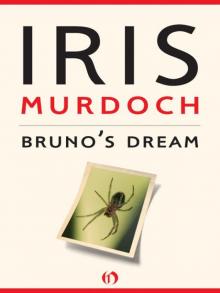 Bruno's Dream
Bruno's Dream An Unofficial rose
An Unofficial rose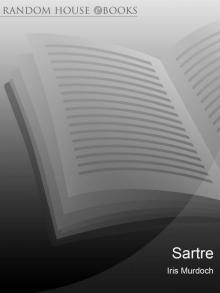 Sartre
Sartre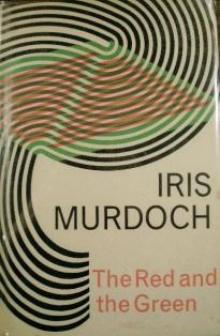 The Red and The Green
The Red and The Green